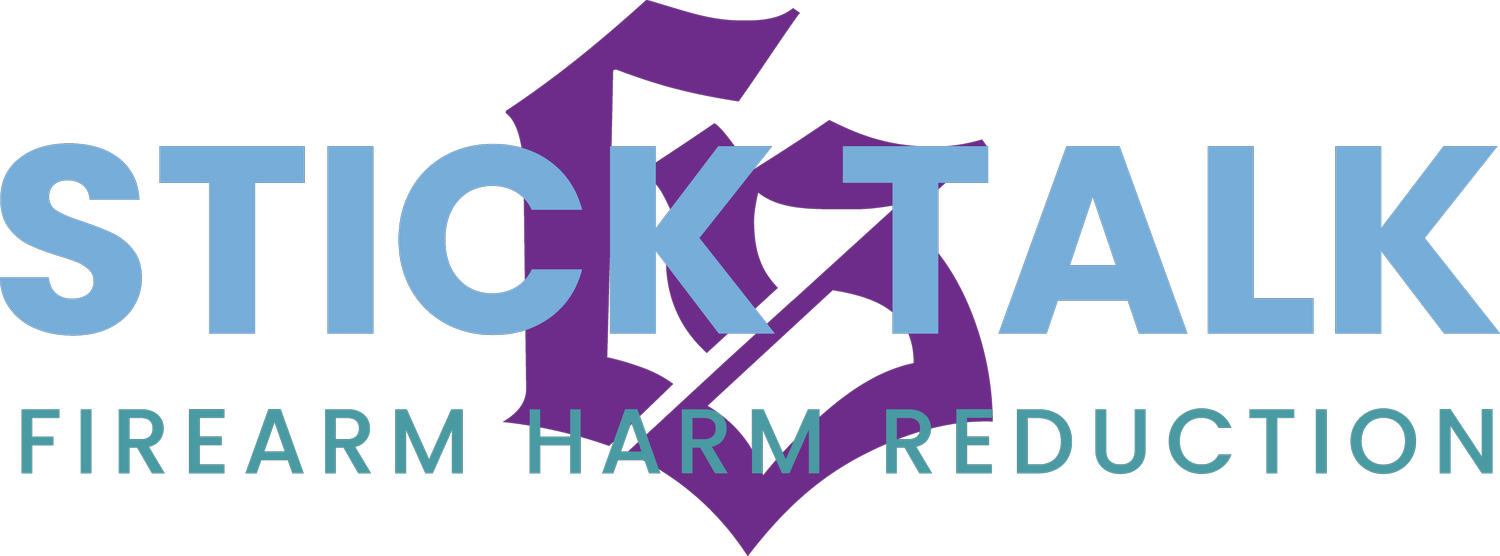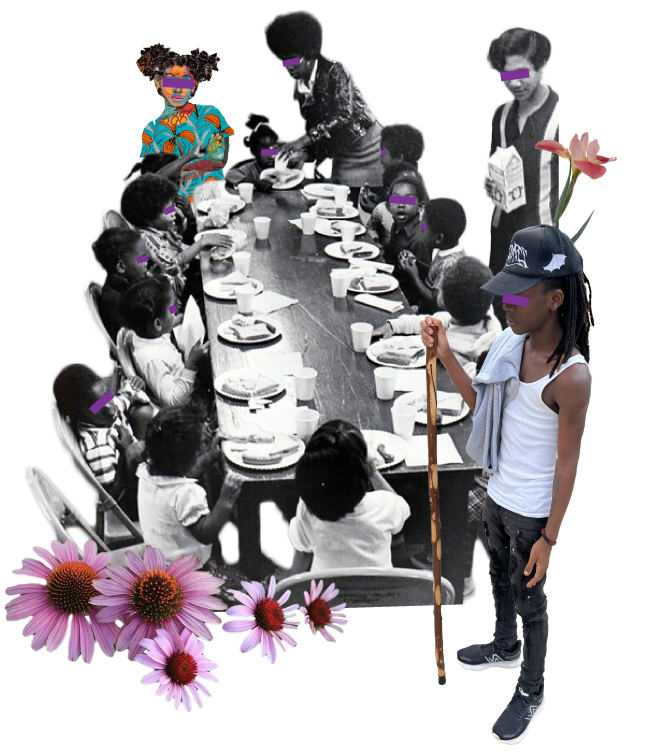
Who we are
Stick Talk is an abolitionist base-building organization that builds capacity for survivor-centered community safety beyond carceral and abstinence-based responses to urban gun violence.
Stick Talk is organizing and weaving together a network of Firearm Harm Reduction hubs , neighborhood-level incubators for
healing
critical conversations
culturally responsive political education
skill acquisition
mutual aid
Our objective
Build competencies and capacities for community safety and accountability that openly acknowledge (without shame or judgment) the easy availability of firearms, and are inclusive of those who carry them.

our TEAM
Stick Talk is stewarded by a predominantly Black collective of organizers, restorative justice practitioners, and popular educators .*
Our multigenerational leadership collective includes people who have been on both sides of the gun, formerly incarcerated people, as well as mothers impacted by violence and incarceration.
We are all intimately affected by community and state violence, and our organizing tactics are rooted in our lived experiences.
We are of Ora Schub, Cheryl Graves, and Mariame Kaba’s lineage : Ora and Cheryl taught us restorative justice; Mariame taught us prison and police abolition.
Stick Talk Co-Executive Directors: Brandon Daurham and ethan ucker
*Popular education is a methodology that grows collective knowledge by building on people’s lived experiences and linking them to structural conditions. Through popular education, people take control of their own learning, mobilize around political struggle, imagine collective liberation, and work toward transformative change.

VALUES
As we support new growth, applications, and implementation of Firearm Harm Reduction, we are committed to maintaining integrity to the shared values that activate our work:
those closest to the problem are closest to solutions
meet people where they are at
community self-determination
de-police and de-professionalize community safety and wellness
We organize inside and out
We work in neighborhoods with high rates of gun violence and gun arrests, and inside prisons to support and mobilize young people who have firearm possession cases while they are incarcerated.
No Face, No Case
Young Black and Brown people in our network are targeted and highly criminalized. So that we are not setting them up to be further monitored and surveilled by the state, we do not use people’s names and we censor photos.






